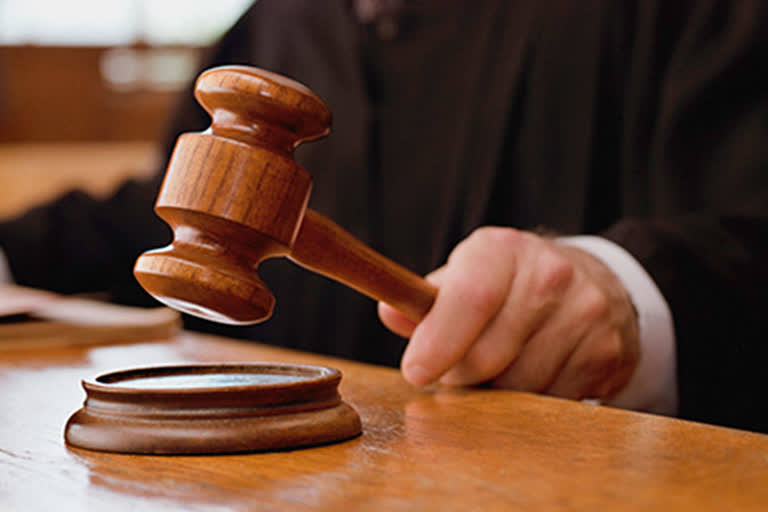New Delhi: The Supreme Court sought the Centre's response on Friday to a plea filed before it challenging the validity of certain provisions of a 1991 law, which prohibit the filing of a lawsuit to reclaim a place of worship or seek a change in its character from what prevailed on August 15, 1947.
The petition alleges that the 1991-law creates an "arbitrary and irrational retrospective cut-off date" of August 15, 1947 for maintaining the character of the places of worship or pilgrimage against encroachment done by "fundamentalist-barbaric invaders and law-breakers".
A bench of Chief Justice SA Bobde and Justice AS Bopanna issued notice to the Centre on the plea filed by BJP leader and advocate Ashwini Upadhyay, seeking that sections 2, 3, 4 of the Places of Worship (Special Provisions) Act, 1991 be set aside on grounds including that these provisions take away the right of a judicial remedy to reclaim a place of worship of any person or a religious group.
Senior advocate Gopal Subramaniyan appeared in the court for the petitioner.
The law has made only one exception -- on the dispute pertaining to the Ram Janmabhoomi-Babri masjid at Ayodhya in Uttar Pradesh.
The fresh plea assumes significance as there has been an ongoing demand by some Hindu groups to reclaim religious places at Mathura and Kashi, which are prohibited under the 1991 law.
Read: Ex-TMC MLA's Pakistan remark sparks controversy
The provisions not only offend the right of equality and life, but also violate the principles of secularism, which is an integral part of the Preamble and the basic structure of the Constitution, the plea says.
The PIL claims that the provisions of the law "not only offend Articles 14 (equality), 15 (prohibits discrimination of Indians on basis of religion, race, caste, sex or place of birth), 21 (protection of life and personal liberty), 25 (freedom of conscience and free profession, practice and propagation of religion), 26 (freedom to manage religious affairs) and 29 (protection of interests of minorities), but also violate the principles of secularism, which is an integral part of the Preamble and the basic structure of the Constitution".
The PIL contends that the Centre has barred the remedies against illegal encroachment on places of worship and pilgrimage of Hindus, Jains, Buddhists and Sikhs, who cannot file a suit or approach a high court.
The petitioner has sought a declaration from the court that the provisions of the Places of Worship (Special Provisions) Act, 1991 are void and unconstitutional for being violative of the fundamental rights to equality, practise one's religion and maintain religious places, among others, as the law validate the "places of worship" illegally made by barbaric invaders.
The plea claims that the restriction to move court is against the principle of rule of law and secularism, and adds that "if the Ayodhya case had not been decided by the Supreme Court's constitution bench on November 9, 2019, Hindus would have been denied justice even after 500 years of the demolition of the temple".
Read: India's freedom not to be taken for granted: Kher
"The Centre by making impugned sections has, without resolution of the disputes through process of the law, abated the suit/proceedings, which is ''per se'' unconstitutional and beyond its law-making power.
"Moreover, impugned provisions cannot be forced with retrospective effect and the judicial remedy of dispute pending, arisen or arising cannot be barred. Centre neither can close the doors of Courts of First Instance, Appellate Courts, Constitutional Courts for aggrieved Hindus, Jains, Buddhists and Sikhs nor take away the power of high courts and Supreme Court, conferred under Article 226 and 32," it says.
Earlier also, another public interest litigation (PIL) petition was filed by the "Vishwa Bhadra Pujari Purohit Mahasangh", seeking directions to declare section 4 of the Act as ultra vires.
Read:Independence of EC can't be compromised in democracy: SC
PTI



